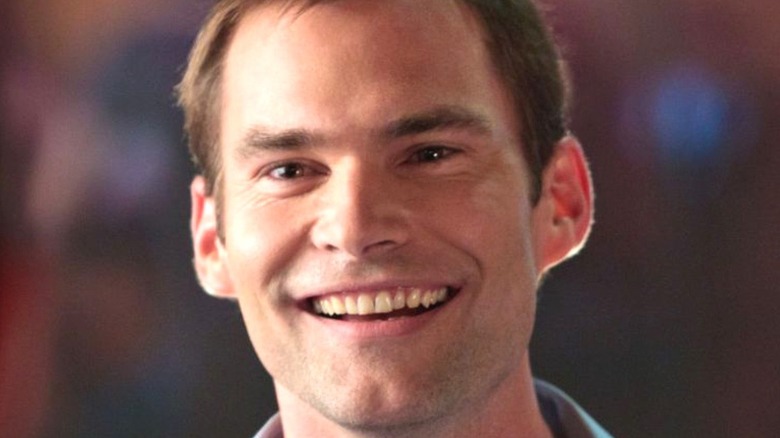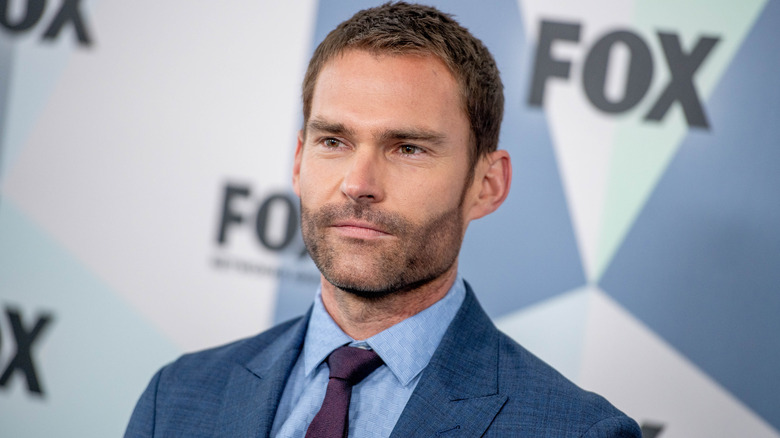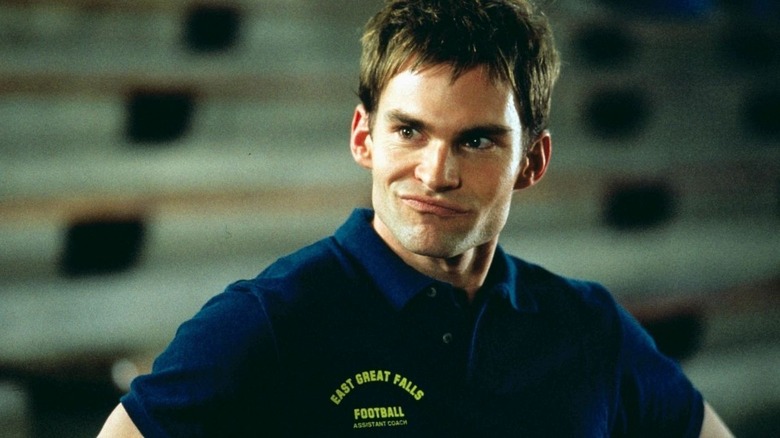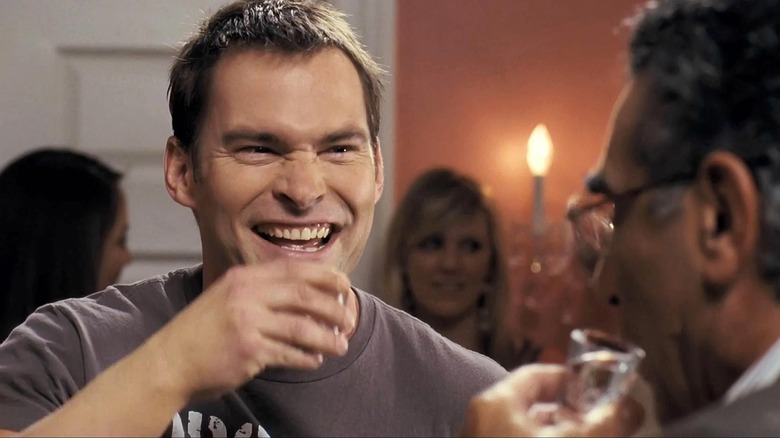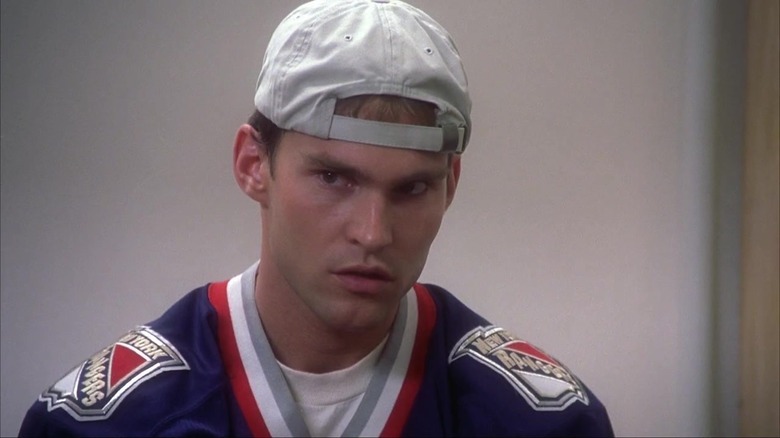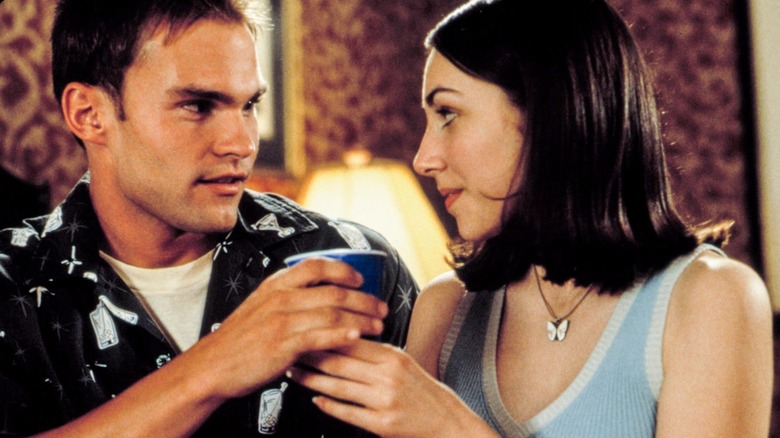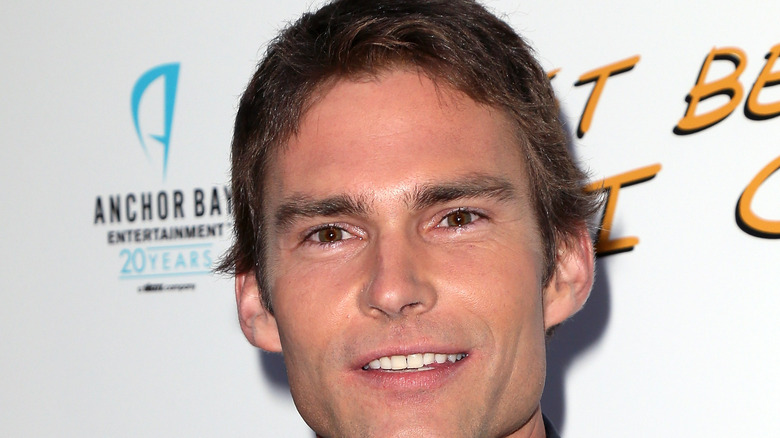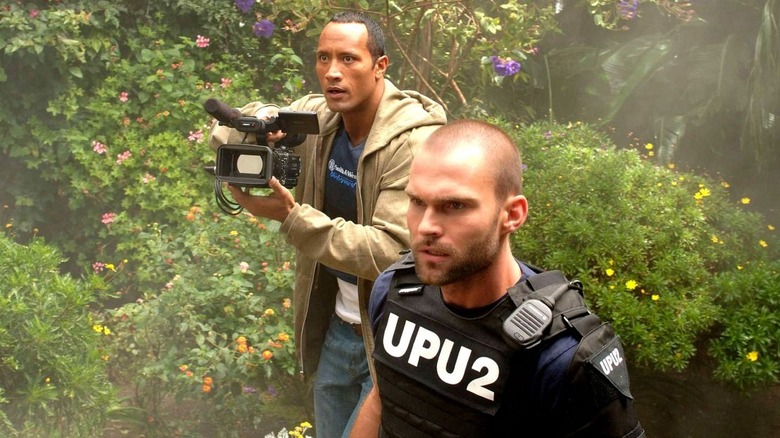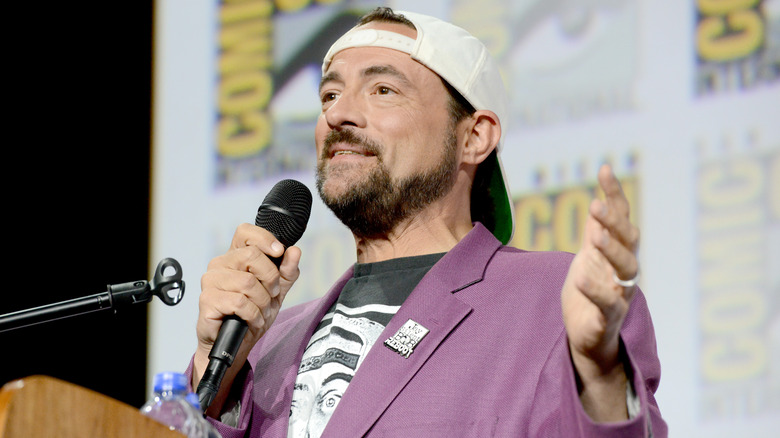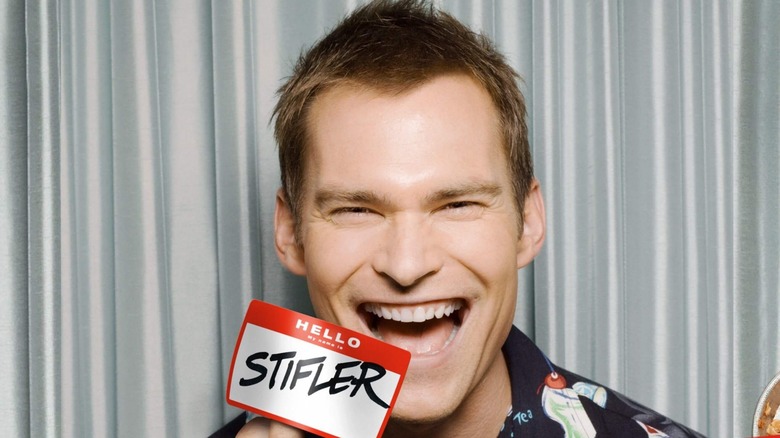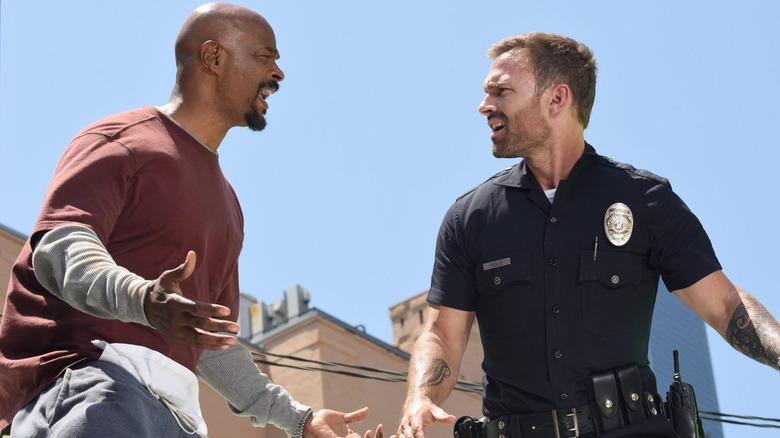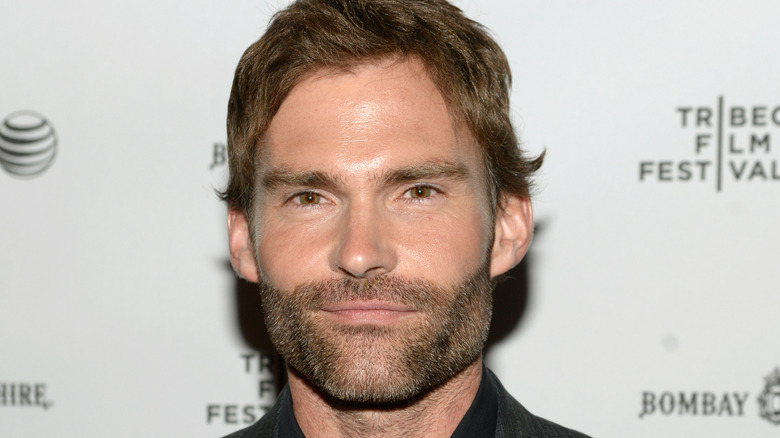Why Seann William Scott Was Never The Same After American Pie
Sometimes, all it takes is one role to change your career. This is especially true of comedic actors, who can go from obscure figures to household names with one carefully-chosen supporting role in a hit comedy.
Just look at how Melissa McCarthy or Zach Galifianakis had their entire career trajectories upended with acclaimed, uproarious turns in "Bridesmaids" and "The Hangover," respectively. Long before those two became household names, however, it happened to Seann William Scott, who stole "American Pie" as crude, rude, dim-witted dude Stifler.
But in the years after that breakthrough, everything changed for Scott. The two decades since has given fans a view to a wild career whose every twist and turn can be traced back to this pivotal role — for better, and for worse.
The notoriety Scott garnered from playing Stifler has allowed him (at times) to be a leading man in movies, a fixture in modern television, and even offered him the freedom to pursue more serious efforts as an actor. It also will most likely be the role the soon-to-be-45-year-old may never outgrow. With that in mind, here's a look at the good, the bad and the ugly sides of a career built on his generation's most iconic coming-of-age movie.
Life before "American Pie"
Before "American Pie," Seann William Scott himself was not a particularly noteworthy performer. He had zero feature film credits to his name, and his most notable forays into performing were appearing in a Sunny Delight commercial and an Aerosmith video. At age 28, he was working at the Home Depot and going on lots of auditions — and it was that conviction eventually resulted in "American Pie."
Part of his early struggles can be attributed to how Scott initially saw himself. "I always anticipated having a career in sports," Scott told NBC in 2008. "Movies were my passion. When my brother [Dan Scott] started 'The Onion' paper, I was reminded that I could have a life outside of being a stressed out professional athlete. I realized I could use the same work ethic and apply it to another career that I love. I graduated early, told my coaches I wasn't going to play sports anymore and moved to LA. I got lucky, got a manager and that was that."
Securing the role of Stifler
When Scott was first hired for the role of Stifler, it hadn't been written as a major character. In fact, Stifler only had a passing presence in the story.
"The Stifler character was in two or three scenes and he was written to be such an a**hole that I was like, 'I don't even know if I'd want to play this guy,'" Scott told Entertainment Weekly in 2019. "So I was like, 'I'm going to rewrite a bit of it, make him the guy you hate to love.' He's probably insecure. He's like the guy who wants to be loved the most."
As it would turn out, his meager scripted presence in the production resulted in a mediocre payday. Despite portraying a fan favorite character in the sex comedy, Scott only scored $8,000 for playing the role.
Nevertheless, Scott saw the part as a once-in-a-lifetime opportunity. "[Stifler] was such a fun character to play," Scott told Yahoo! twenty years after the initial "Pie," reflecting on the role. "At the beginning of my career, that genre of films of R-rated crazy comedies were doing really well, so as much as I wanted to maybe do something more dramatic or serious, I was like, this character is much more fun to play than the boring straight guy."
Becoming a breakout star
The summer of 1999 began with moviegoers counting down the days to the first new "Star Wars" movie in 16 years. By the end of that season, many had shifted to discussions of the over-the-top raunch of "American Pie." A good deal of this talk involved Seann William Scott, who embodied a classic version of abrasive masculine immaturity, and whose commitment to the part turned what could have been a nuisance into a fan favorite.
Scott's appeal as Stifler was so strong that it even lasted well into the various "Pie" sequels. While reviewing 2012's "American Reunion," Roger Ebert mentioned his affinity for Scott's Stifler while calling him a highlight of the feature. "Seann William Scott ... has made the role of Stifler his own, and seems able to morph his face into an entirely new person," Ebert reflected. "Narrowed eyes, broad maniacal grin, frightening focus, still with all the zeal for seduction and adventure he had in high school. The ingenuity with which he destroys the jet skis of two jerks can only be admired."
Even in these more enlightened times, a 2019 retrospective review of the original "American Pie" that criticized the feature's politically incorrect elements still found time to praise Scott's performance. Years removed from when "American Pie" first hit theaters, Scott can still drum up enough praise to remind everyone why he became the film's biggest breakout star.
Immediate further work
In the wake of "American Pie," Scott's status as an actor was significantly elevated.
His first appearance, in 2000's original "Final Destination" was a brief one that had him meeting a graphic demise on-screen. After that, Scott headlined the Todd Phillips feature "Road Trip," another raunchy comedy that cast him among a group of students who hit the road in pursuit of sexual delights.
Other roles around this time included inspired ones ("Dude, Where's My Car?") and best-forgotten ones ("Evolution"), all playing off the dim, horny jock persona he suddenly had all to himself. It's an age-old Hollywood question: Do you lean into your notoriety and risk the diminishing returns of repetition? Or do you try to blaze a unique path, and risk alienating your newfound fans?
"I was like nah, being the funny guy, that's not why I came to LA.," Scott said in 2003 of his struggle grappling with such questions. "But I appreciated it and I realized that this is really just a blessing to be able to make people laugh."
One good Stifler deserves another
When a comedy becomes as successful as "American Pie," it's only a matter of time before talk turns to a sequel. "Pie" presented a pair, almost immediately. The first of these arrived in 2001 under the name "American Pie 2."
A smash hit, its success got "American Wedding" greenlit, which would arrive in 2003. Suddenly, the franchise wasn't about teenage sexual escapades anymore, but instead watching the characters navigate various stages of young adulthood. Through it all, Stifler remained an anchor of immaturity who could always be counted on for crazy antics and ill-advised situations.
"I don't know why people like the character," Scott admitted in 2003. "[It's because of] the way [his friends] played off that character. Because, if they would have dismissed him and just treated him as an utter a**hole ... as an audience member you're like, 'Whoa, he's just a jerk.' ...They just play with him and they accept what he does and they connect."
The leading man era of Scott's career
While films like 2001's "Jay and Silent Bob Strike Back" and 2003's "Old School" cast Scott in supporting roles, he also got plenty of opportunities to become a leading man.
In 2003, he was cast opposite fellow-rising-star Dwayne "The Rock" Johnson in Peter Berg's so-so "The Rundown." He also signed on for 2005's high-profile reboot of "The Dukes of Hazzard," joining a cast that included Johnny Knoxville, Jessica Simpson and Burt Reynolds — all of whom were at hot points in their career. Despite a massive ad campaign, the General Lee failed to take flight again, with "Dukes" bombing both critically and at the box office.
A string of ill-conceived comedies followed, many trying to recapture that Stifler magic. 2007's "American Loser" cast him opposite Gretchen Mol as a rudderless adolescent adult, that same year "Mr. Woodcock" put him opposite Billy Bob Thornton as an adult looking to get revenge for his adolescence, and 2008's "The Promotion" had Scott competing with John C. Reilly to get past the adolescent ways that had stopped them from advancing in their careers. Collectively, the films made enough money at the box office to pay for the cardboard box labeled "bargain bin" where their VHS tapes would soon reside.
In 2008, however, Scott made a dent with Paul Rudd on one of his first star vehicles, "Role Models."
"He's not really mean to anybody," Scott said at the time, trying to put some space between his "Models" character and Stifler. "He's actually a very optimistic guy. But clearly just the whole kind of physicality of it, and just that vibe is very similar. But, I had wanted to add something that made him a little more irreverent."
Paired up with "Wet Hot American Summer" filmmaker David Wain, "Role Models" earned significantly better reviews than "Hazzard" and Scott's other films of this period, and also fared better at the box office. But still, now a decade after his "American Pie" breakthrough, Seann William Scott was still trying to overcome the same typecasted limitations.
Detours into dramatic work
Adam Sandler attempted to expand his range with films like "Uncut Gems," "Punch-Drunk Love" and "Reign Over Me." Melissa McCarthy did the same with "Can You Ever Forgive Me?" and "The Kitchen." Jim Carrey had "The Truman Show" and "Man on the Moon."
Seann William Scott, for his part, was smart enough to try and do something similar. The only problem is, he may have just bet on the wrong horses.
His big, high-profile leading man play was undoubtedly "Bulletproof Monk." The 2003 film was based on a comic book, would mark the directorial debut of in-demand music video director Paul Hunter (Mariah Carey, Michael Jackson), cast him alongside international superstar Chow Yun-Fat in his first role since "Crouching Tiger, Hidden Dragon," and was a high-profile action film that hoped to launch a franchise with Seann's character as its Luke Skywalker-like hero in training — what could go wrong?
To answer that question, ask yourself: When was the last time you heard anyone talk about "Bulletproof Monk"?
Around the same time, he signed up for what was a very in-demand movie — "Southland Tales," filmmaker Richard Kelly's feverishly-anticipated follow-up to "Donnie Darko," a movie that seemed to have announced the arrival of Hollywood's newest auteur. Co-stars included The Rock, Justin Timberlake, Amy Poehler, Sarah Michelle Gellar and Mandy Moore ... but the production became notoriously troubled, the film was rumored to be largely incoherent, and after years of delays was released with little fanfare.
"I think it's a movie that you're either going to love or you're going to hate," Scott said in 2007 after viewing one of the many "Southland Tales" cuts made during its delay in release. "I think there's a chance that half you guys and girls in this room will think it's really cool. The other ones are going to think it's pretentious."
Neither of these films set the box office on fire, nor did they become the kind of critical darlings that could rewrite an actor's public image. In more recent years, Scott has appeared in the grisly thriller "Bloodline" and the crime drama "Already Gone," but neither of them fared much better.
Connecting with Kevin Smith
In 2010, Seann William Scott kicked off a new decade by connecting with one of the most prolific names in 1990s indie cinema.
Filmmaker Kevin Smith probably seemed like safe bet, as did starring opposite the legendary Bruce Willis. What Scott most likely didn't anticipate, however, was a troubled production that had the original title dropped against Smith's wishes, the director and leading man coming to despise each other, and the entire experience being so miserable that Smith hasn't made a studio film since.
Scott was, however, one of the funnier parts of the finished film. Despite "Cop Out" faring poorly with critics and the box office, it did earn the actor a dream role — well, maybe.
Smith, who has an entire Wikipedia page devoted to his intended projects that never got off the ground, considered his collaboration with Scott to be the inspiration he needed to push "Hit Somebody" (a hockey comedy based on a Warren Zevon song) across the goal line.
"Seann, for me, was the key into the character," Smith explained in 2010. "This dude has something in him that you can just see hangs so well on Buddy. He's got some pain that's going to work out well."
As you may have guessed, "Hit Somebody" has still not made the leap from the page to the silver screen. It was going to be two movies, then one movie again, then a mini-series, and eventually Smith just read a script on his podcast in 2018. Whether the film is ever resurrected — and whether Scott will still play the part — seems doubtful at this point. If you want an idea of the general vicinity of that project, however, it might be worth tracking down Scott's two "Goon" films — which have a loyal following and also tell a hockey tale.
A return to Stifler
In 2013, Seann William Scott returned to the role that had made him a household name with "American Reunion," a fourth installment of the franchise (well, not including all those straight-to-video ones with Eugene Levy) that had the "American Pie" gang returning for more raunchy escapades. This gave Scott the opportunity to return to the role of Stifler, now a decade older but only marginally wiser.
Scott didn't need any coercion to come back to the franchise that made him. In fact, according to him, it was his idea.
"It was a long time in the making because I pitched the movie three years ago," Scott said. "The idea of bringing everybody back for a high school reunion. I had three years to go, 'Wow, how much fun is it going to be to play Stifler in his 30s'. It was a blast."
"Reunion" received mixed reviews from critics, earning $56 million in the US, but a more-impressive overseas tally that put its worldwide total over $234 million.
Opportunities in television
Two decades after his "American Pie" breakthrough, Scott is still a working actor — although it's hard to argue any of his several dozen roles has come close to Stifler as far as mass appeal and awareness.
In 2018, he took over the lead role in the FOX cop show "Lethal Weapon." Though he was coming on to a program fraught with behind-the-scenes drama, Scott's presence on the show gave it a much-needed positive boost in publicity. Intriguingly, Scott apparently pursued the role himself once he saw that the show's original lead, Clayne Crawford, had been fired by the program.
Though "Lethal Weapon" with Scott in the lead role lasted just one season, that wasn't the end of his TV work. Later in 2021, he'll be back on the FOX network with "Welcome to Flatch," a docu-comedy that aims to be "The Office" for small-town America.
A comedic project, "Flatch" seems like it could represent a fundamental shift in Scott's career, as he plays an authority figure in the lives of some younger troublemakers who seem like they would've been fast friends with Stifler back in his heyday. Who knows? Perhaps this is the beginning of Sean William Scott reinventing himself as a middle-aged actor whose days of frivolity are behind him.
Scott's own reflections on how American Pie changed everything
It has now been well over two decades since Scott's life was changed forever through the antics of Stifler in "American Pie." Though it has had its ups and downs, he has insisted that he has no regrets about the career-launching role.
"I didn't think Martin Scorsese was going to cast me in his next movie," Scott said in 2018. "I understood why I wasn't getting cast for other things. I would have been a distraction. I kind of pigeonholed myself, but I felt really lucky to get the chance to make people laugh."
Given that the combined worldwide grosses of his movies have exceeded $1 billion, it is hard to feel too bad for Seann William Scott. Some gambles have paid off, others have not — but talk to any actor, and they'll most likely tell you they'd be happy to have a decades-long career with more than 30 TV and film projects under their belt.
"I just got lucky with 'American Pie,'" he said in 2008. "That movie gave me a career."
